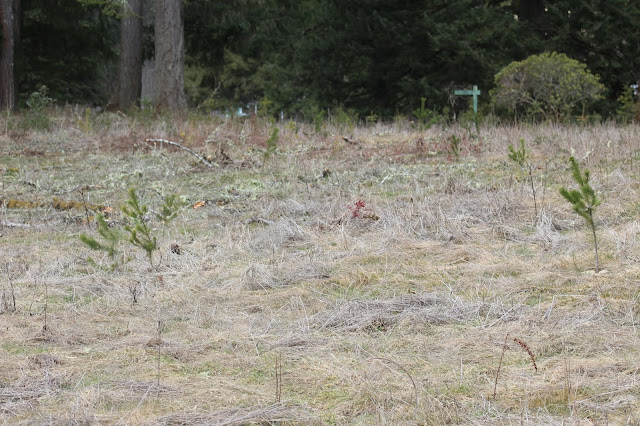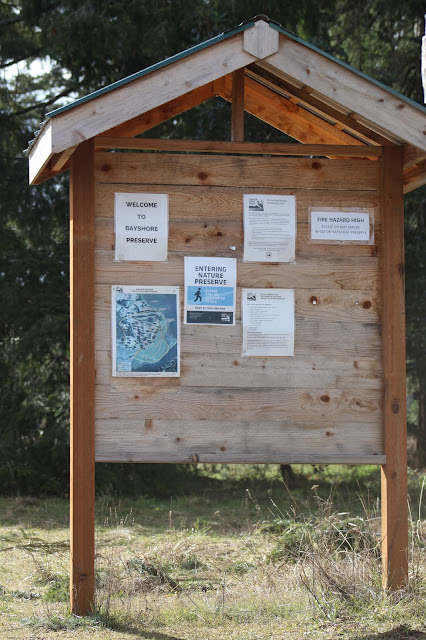There was a
high overcast and it was 38° F when we got up this morning. I got Marty off to work, then drove out
through Allyn to the Kitsap Peninsula where Mountain Quail had been reported to
eBird this past week or so. As I drove
north on U.S. Highway 101, the Olympic Mountains were showing above the clouds.
 |
| Dontcha just hate having to live in the Pacific Northwest? |
However,
when I got to the clear-cut where the quail have been seen and heard, it was
pretty foggy. As I got out of the car, I
heard the clear whistle of the Mountain Quail,
 |
| There's a quail calling out there |
repeatedly coming from the brush
to the west. I walked out to the power
lines and back,
 |
| Still foggy, still hearing the quail off to the right . . . |
but never got a view of the quail, although I got a sound
recording.
The preserve covers 74 acres on
the western shore of Oakland Bay, Puget Sound, about three miles northwest of
Shelton in Mason County, Washington on Oakland Bay.
The property features 27 acres of pristine salt marsh habitat, over 4,000 feet
of Oakland Bay shoreline, and the lower portion of Johns Creek.
 |
| Don't walk on their marsh |
A portion of
the preserve includes the 47-acre former 1948 nine-hole golf course that closed
at the end of 2013. The Trust notes that
the course is “… being restored to native habitat.” Unfortunately, much of the “restoration”
consists of planting a lot of fir and pine trees, along with willows and other
deciduous starts in what was obviously a remnant of Puget Sound native prairies.
 |
| Many conservation groups believe that "restoration" means planting trees . . . |
Rather than
planting “native” lodgepole pine, it would have been so nice for the Trust to
have worked with other conservation organizations to restore the critically
endangered prairie habitat.
 |
| Remnant white oak prairi |
There are
many beautiful “heritage” Garry Oaks on the site, but the “restorers” have
planted “native” trees and shrubs underneath these ancient oaks. The problem is that when the trees and bush
grow up into the limbs of the oaks, and finally over-top them, it will kill the
white oaks by shading them and increasing the moisture and insects for a tree
that needs open, dry growing conditions.
 |
| "Restoration" will likely kill this oak in about 40 years . . . |
Part of the
completed restoration includes removal of buildings and a 1,400 foot tidal
dike, and the creation of new tidal channels along the marine shoreline and new
side channels on Johns Creek.
In spite of the land-use "restoration" issues, this is a nice place to stop and bird along Highway 3 in Mason County.
146th
Street Quail Spot eBird Checklist is Here
Bayshore
Preserve eBird Checklist is Here











No comments:
Post a Comment